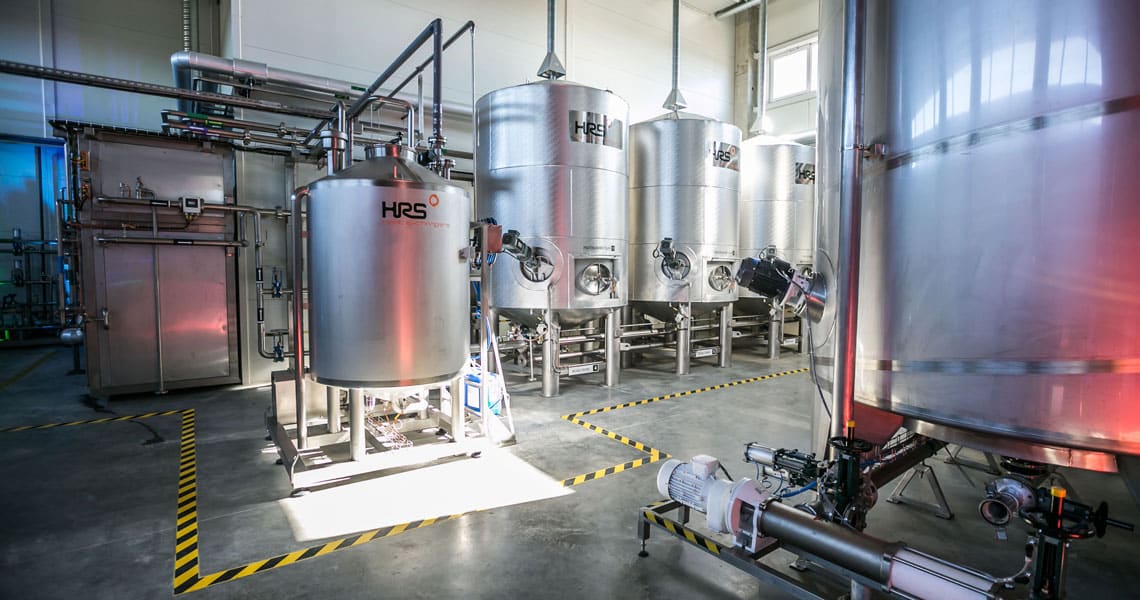Pasteurisation Essential for Lithuanian AD Plant
HRS Heat Exchangers has helped a developer and operator of renewable energy projects across Europe, upgrade its 10.8 MW anaerobic digestion plant near the town of Vievis in southern Lithuania.

The Plant
Opened in 2019, the plant is a state-of-the art biodegradable materials processing plant treating some 55,000 tonnes of agricultural, industrial and local authority waste a year (equivalent to a city of 310,000 people) to produce 86,000 MWh of electricity, resulting in CO2 savings of 120,000 tonnes. Feedstocks include agricultural materials such as corn, grass and other products, as well as food industry waste including animal remains from slaughterhouses.
The Challenge
In order to process animal by-products and allow the digestate that results from the process to be used as an organic, renewable green fertiliser, it is necessary to heat treat either the feedstock or the digestate. For this process, the operator selected the HRS Digestate Pasteurisation System (DPS). Not only does this heat-treat the digestate ensuring that it is free from pathogens and weed seeds, but it also helps to remove odours while maintaining the quality of the resulting biofertiliser.
A change of feedstock in 2020 resulted in changes to the properties of the digestate being processed, reducing the heat transfer efficiency of the original heat exchanger in the HRS DPS system.
The Solution
HRS worked closely with the plant operator to upgrade the heat exchanger technology used in the system. HRS redesigned the system, incorporating a new heat exchanger designed for more viscous products, and used as many of the existing system’s components, together with existing tanks on site, in order to implement the new and improved process at the lowest cost.
Efficiency has been the watchword for the design and operation of the Vievis AD plant, and the energy efficient design of the HRS DPS was a key factor in its selection. The tank based DPS uses up to 70% less energy than other technologies, working on a three-tank principle. While one tank is being filled, the second tank holds the digestate above 70°C, at the same time as the third tank is being emptied, with each process lasting an hour.
The Vievis AD plant is now capable of handling a wide range of challenging viscous feedstocks while continuing to produce green renewable energy and biofertiliser.